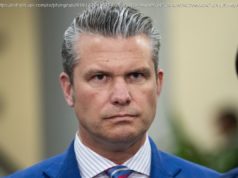Chinese President Xi Jinping on Monday opens an annual summit of BRICS leaders that already has been upstaged by North Korea’s latest nuclear weapons provocation.
Chinese President Xi Jinping on Monday opens an annual summit of BRICS leaders that already has been upstaged by North Korea’s latest nuclear weapons provocation.
The BRICS — Brazil, Russia, India, China and South Africa — had gathered in the southeastern Chinese city of Xiamen hoping to counter accusations that the group of big emerging economies was drifting apart and becoming irrelevant.
But North Korea stole the spotlight on Sunday by announcing it had detonated a powerful hydrogen bomb and claiming it could fit the device on a long-range missile, dramatically raising the stakes in its standoff with the world.
The nuclear test came just before Xi took the stage for a pre-BRICS address in Xiamen, timing that seemed deliberate and will doubt angered Beijing, which swiftly condemned the explosion.
The summit includes Indian Prime Minister Narendra Modi, Vladimir Putin of Russia, Brazil’s Michel Temer and South Africa’s Jacob Zuma.
BRICS was already struggling to live down doubts about its own cohesion that have spiked since nuclear-armed China and India engaged in a protracted standoff over a disputed Himalayan region.
They backed off last week — perhaps to avoid ruining the summit — but the issue remains tense and eyes will be on the interplay between Modi and Xi on Monday.
In his speech Sunday, Xi stressed the need for BRICS members to show mutual respect and « avoid conflicts » but otherwise did not mention the border dispute.
BRICS nations, who comprise more than 40 percent of humanity, came together a decade ago to advocate for the developing world’s interests.
But policy analysts have increasingly questioned the group’s relevance, pointing out that its members have little in common and face various economic challenges.
Xi alluded to these questions in his speech.
« Some people, seeing that emerging markets and developing countries have experienced growth setbacks, assert that BRICS countries are losing their lustre, » he said, admitting the group’s members faced various « headwinds ».
BRICS includes Communist-ruled China, authoritarian Russia and the democracies of India, Brazil and South Africa.
China remains an economic powerhouse, though a slowing one, while India is rising. But slumping commodity prices have hit hard the economies of exporters Russia, Brazil and South Africa.
Brazil’s Temer and South Africa’s Zuma, meanwhile, are distracted by political turmoil at home.
Perhaps the BRICS’ biggest success has been the 2016 establishment of the Shanghai-based New Development Bank, envisioned as the developing world’s World Bank, but many economists doubt it will be influential.
Intra-BRICS trade is heavily tilted in China’s favour, fuelling complaints from fellow members. India alone has lodged several trade cases against China this year.
The North Korean hydrogen bomb claim represents an apparent major advance in Pyongyang’s banned nuclear weapons programme and brought condemnation from the international community, which has forbidden North Korea’s pursuit of atomic weapons and missiles.
Xi and Putin held a bilateral meeting late Sunday during which they discussed the North Korea blast and pledged to « appropriately deal » with the issue, China’s official Xinhua news agency said, without giving details.






